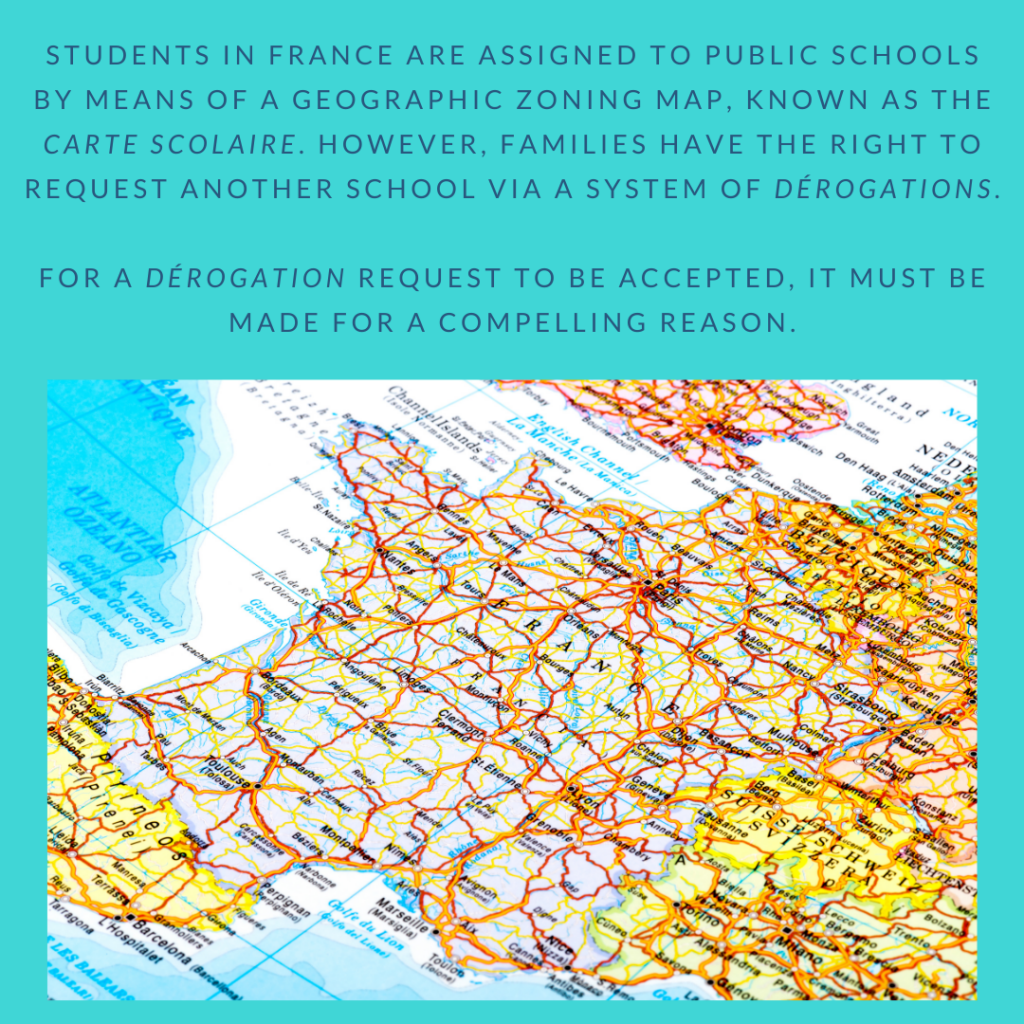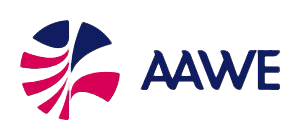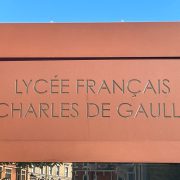Getting Permission to Change Schools – Part 1

This is the first in a two-part series of articles on getting permission to change from one public school to another. Here I will give you an overview of this process, reasons that are valid to request a change and reasons that are likely to be rejected, and some specific information about the procedure in maternelle and primaire.
Students in France are assigned to public schools by means of a geographic zoning map, known as the carte scolaire. However, families have the right to request another school via a system of dérogations. In addition to requesting a dérogation, some parents resort to more radical means to get their children into their school of choice, including falsifying their address, buying a maid’s room in the coveted neighborhood, or pulling strings (note that we in no way condone these methods!).
Reasons for Requesting a Dérogation
For a dérogation request to be accepted, it must be made for a compelling reason. Requests citing reasons of personal convenience (the school is on your way to the nearest métro, for example) are usually refused.
At the maternelle and primary level, here are a few valid reasons for requesting a dérogation:
- The child’s caregiver living near the school
- The school’s location is close to the parent’s place of work
- Both parents work and the school must have a cafeteria (cantine) or a before/after-school program (garderie/ étude)
Certain files have priority:
- those of children with medical problems or handicaps
- students receiving financial assistance (élèves boursiers)
- those with a sibling already in the school
- those whose home address is near the desired school
- those wishing to study a foreign language or be part of a special option that is not offered in their assigned school
Certain schools, such as those offering international and European sections, or special music and sports classes, are subject to specific recruitment procedures. These often involve application files, tests or auditions, and interviews. If you are interested in such a school you are encouraged to contact the school at the beginning of the transitional years (GS, CM2, or Troisième) to inquire about requirements and deadlines.
If your request for a dérogation is denied, it can be renewed as often as you wish.

Procedure for Requesting a Dérogation
Maternelle or Primaire
The carte scolaires for maternelle and primaire are determined by municipal councils. Your town hall (mairie) website should provide this information.
Your child must be enrolled in a public school before a dérogation is requested, even if you are new to the district or the child is beginning school. Once your child has been enrolled at the mairie of the town/arrondissement in which you live, you should inquire at the mairie of the school in which you wish to enroll your child to find out the proper procedure, as each town/arrondissement manages its own registrations.
Often requests for dérogations can only be made at specific times during the year, usually in February or March. Wherever you live, inquire well in advance, and respect all deadlines for the best chance of success. You will most often be asked to download a feuille de dérogation, which you will complete and join to a letter of motivation outlining your family’s particular circumstances and significant reasons for changing schools (your motif). Be sure to include corroborating documentation if you have it, such as your assistante maternelle’s work contract with the address indicated.
The procedure for submission of the paperwork varies from town to town. Some simply require that you submit your completed request to the town hall. Others stipulate that you take the form to your assigned school, where the school principal will sign the sheet then forward it to the directeur of the school you wish to attend. The file will then be sent to the Inspecteur de l’Education Nationale.
At the end of May/beginning of June, a commission de dérogation, made up of the mayor’s representatives, representatives from the Direction des services départementaux de l’éducation nationale (DSDEN), directors of the district’s public schools, and representatives of parents’ associations meet to review all dérogation requests. If you are a member of one of the parent associations, you might wish to contact your local representatives and explain your case, so that they may advocate on your behalf during the session. Requests are either granted or denied depending on local circumstances, and they are contingent on space availability.
A word to the wise – always be diplomatic when completing these formalities. You don’t want to burn any bridges should your request be denied. Also, be aware that while requesting a dérogation is possible, it is not encouraged. Some towns, such as St. Germain-en-Laye, make absolutely no mention of it on their website. The 18e arrondissement in Paris states that if your request is denied, your child no longer has priority in their assigned school, and will be assigned to a third school if the école de secteur is full. Know as well that if you are requesting a school in another town, the town where you live will have to pay a sum of money to the town where your child will attend school, which may motivate a denial. School officials may also deny requests if the drop in student numbers could provoke a class closure.
Are you looking for information about changing schools in Collège and Lycée, and some special aspects to consider if you live in Paris? Look for the second half of this article to be posted the first part of November.
Margaret Jenkins
Margaret Jenkins is the Assistant Director of the American Section of the Lycée International in Saint Germain-en-Laye. She has been at the school for past seventeen years and has worked in nearly every aspect of school administration, notably piloting the growth of the school’s advancement program, integrating communications, community relations, development, and alumni relations. She also works closely with secondary students, including leading a long-standing community service and culture exchange trip to India. In her spare time, she serves on COGNIA accreditation teams for schools worldwide, and is involved with local non-profits, such as AAWE, USAGSO, and the Wellesley Club of Paris.










Leave a Reply
Want to join the discussion?Feel free to contribute!